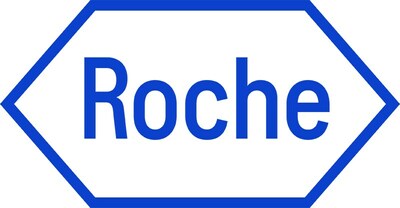Millennials at highest risk of missing crucial cervical cancer screenings, finds survey commissioned by Roche
Rhea-AI Summary
Roche (OTCQX: RHHBY) commissioned a Europe survey (5,518 respondents) and found 31% of eligible millennials (age 29–42) postponed or missed cervical screening—27% above the all-age average. The research reports fear (30%) and workplace demands as top barriers, with high-income earners 22% more likely to delay and 27% of parents reporting missed appointments. Millennials cited workplace flexibility (19%), travel/childcare support (12%), and encouragement (10%) as motivators. Roche promotes self-sampling and tailored outreach to increase attendance and advance its cervical cancer elimination campaign.
Positive
- 31% of millennials postponed or missed screenings (survey of 5,518)
- Research identifies concrete motivators: 19% want workplace flexibility
- Positions Roche to expand self-sampling and outreach solutions
- Campaign supports demand generation for screening products/services
Negative
- 30% cite fear as primary barrier to screening attendance
- Nearly 50% believe no support schemes exist, indicating awareness gap
- 27% of parents delayed or cancelled screening appointments
News Market Reaction
On the day this news was published, RHHBY declined NaN%, reflecting a moderate negative market reaction.
Data tracked by StockTitan Argus on the day of publication.
-
New research shows that people aged 29-42 are more likely to miss cervical screenings than any other age group.1
-
Almost one third of surveyed European millennials eligible for routine cervical screening have postponed or skipped their appointment.1
- Cervical cancer is one of the most preventable cancers, with almost all cases avoidable through vaccination and regular screenings.2
Despite screening services being widely available free of charge or heavily subsidised in many countries, for the millennials surveyed, specific challenges make accessing routine cervical screening difficult. In addition to the well-documented fears reported over pain, embarrassment or stigma surrounding screenings,1 the research reveals that millennials face a particular challenge in balancing careers, caregiving responsibilities, and relationships. These overlapping commitments appear to push cervical screenings – which remain vital for detecting HPV, the cause of over
"Millennials are often said to be the 'have it all generation,' juggling careers, caregiving, and societal expectations. Yet, they tend to put themselves last," said Joanna Sickler, Vice-President, Health Policy and External Affairs at Roche Diagnostics. "The research shows that millennials are disproportionately failing to prioritise cervical screening, because of a mix of emotional, logistical, and societal pressures. It's critical to design solutions like self-sampling that allow screening to fit into their reality. It's not just important, it's essential to saving lives."
The findings highlight the importance of practical, tailored interventions that address the barriers millennials face. Commenting on the results, Professor Daniel Kelly OBE, Cardiff University, and Co-Chair of the HPV and Hep B Action Network at the European Cancer Organisation said: "Healthcare systems must evolve to meet women where and how they live offering flexible, person-centred screening options and access to vaccination while fostering open dialogue and community engagement that normalise cervical health as a shared responsibility."
Fear remains the biggest barrier to cervical screening attendance. Thirty percent of all women cite fear as the primary reason for missing or delaying their appointments, driven by anxiety about discomfort, pain, or the potential results. The survey also found that professional commitments and workplace demands are a major factor, and the second-largest barrier for all participants. High-income earners (top third of income ranges across markets) are
Caregiving responsibilities add another layer of complexity, particularly for parents. For many, the demands of family life take priority over personal health, with
These challenges are compounded by a lack of awareness and discussion around cervical screening, with half of women surveyed believing there are no schemes to support or subsidise healthcare appointments. Additionally, nearly
Practical and emotional support are key to improving attendance rates. Among millennials who postponed their screenings,
Cervical cancer: it only ends with all of us
Every year, cervical cancer affects more than 600,000 women globally,2 yet it is preventable in almost all cases through vaccination, early detection, and treatment of precancers.2 At Roche Diagnostics, we are committed to the elimination of cervical cancer through collective action. Our campaign, Cervical cancer: it only ends with all of us, focuses on reducing barriers to access, normalising conversations about cervical health, and enabling more eligible individuals to attend their routine screenings.
Roche is working alongside healthcare systems, governments, and communities to provide flexible screening options such as self-collection, inclusive education, and clear communication about the importance of early detection. Together, we can help improve attendance rates, empower individuals to take action for their health, and prevent cervical cancer from claiming more lives. Eliminating cervical cancer starts with all of us.
For more information, visit: https://roche.com/stories/cervical-cancer-it-only-ends-with-all-of-us
About Roche
Founded in 1896 in
In recognising our endeavour to pursue a long-term perspective in all we do, Roche has been named one of the most sustainable companies in the pharmaceuticals industry by the Dow Jones Sustainability Indices for the fifteenth consecutive year. This distinction also reflects our efforts to improve access to healthcare together with local partners in every country we work.
Genentech, in
For more information, please visit www.roche.com.
All trademarks used or mentioned in this release are protected by law.
[1] GWI – Roche. Cervical Cancer Europe Study 2025.
[2] World Health Organisation. Cervical Cancer Factsheet. Available at URL: https://www.who.int/health-topics/cervical-cancer#tab=tab_1
[3] Centers for Disease Control, Cancers caused by HPV. Available at URL: https://www.cdc.gov/hpv/about/cancers-caused-by-hpv.html
Roche Diagnostics Communications
Kathryn Ager
Senior Communications Business Partner, Roche Diagnostics
kathryn.ager@roche.com
Phone: +44 07745 115046
![]() View original content to download multimedia:https://www.prnewswire.com/news-releases/millennials-at-highest-risk-of-missing-crucial-cervical-cancer-screenings-finds-survey-commissioned-by-roche-302611895.html
View original content to download multimedia:https://www.prnewswire.com/news-releases/millennials-at-highest-risk-of-missing-crucial-cervical-cancer-screenings-finds-survey-commissioned-by-roche-302611895.html
SOURCE Roche








